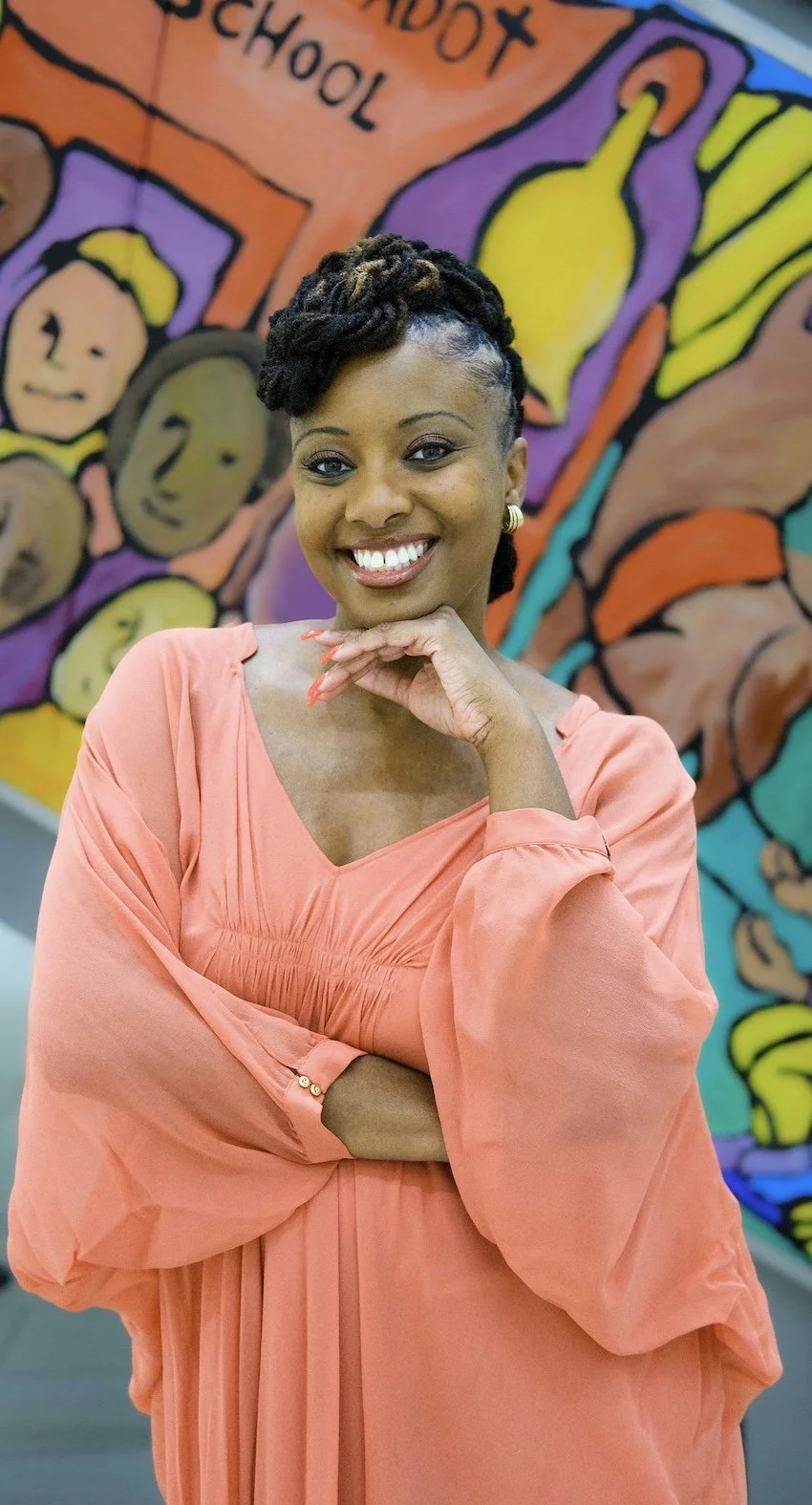Dolen Perkins-Valdez is the New York Times bestselling author of Wench, and Balm. She was awarded the 2023 NAACP Image Award and the Black Caucus of the American Library Association for Take My Hand. She was a finalist for the Hurston/Wright Legacy Award for fiction, and she was awarded the First Novelist Award by the Black Caucus of the American Library Association. She lives in Washington, DC with her family and teaches at American University. She discusses her latest novel Take My Hand, along with the importance of family, legacy, and history, particularly in regards to race.
In 2017, HarperCollins released Wench as one of eight "Olive Titles," limited edition modern classics that included books by Edward P. Jones, Louise Erdrich, and Zora Neale Hurston.
Dolen is the current Chair of the Board of the PEN/Faulkner Foundation. On behalf of the foundation, she has visited nearly every public high school in the District of Columbia to talk about the importance of reading and writing. She is currently Associate Professor in the Literature Department at American University and lives in Washington, DC with her family.
DOLEN PERKINS-VALDEZ
My dad graduated from Tuskegee, and he often told me about the Tuskegee Syphilis Experiment. He really wanted me to understand the history, not only of medical experimentation but more specifically, medical experimentation in the state of Alabama.
I began to read at one point, about J. Marion Sims, a doctor who is considered by many to be the father of modern gynecology but who operated, who developed, his procedures on the bodies of enslaved black women. He often would operate on them outdoors in public for people to watch, and he would develop these very, very painful techniques, like a vaginal fistula without giving the women any pain medication. And I wanted to speak the names of those women–Lucy Zimmerman, Betsey Harris, Anarcha Westcott who I believe if anything are the mothers of modern gynecology because they sacrifice their bodies.
So my feeling about medical experimentation is that there's a long history in this country of medical experimentation on black bodies, particularly based behind this racist notion that black people don't feel pain in the same way. And so I've always sort of known that, but once I started to research this book, I began to really understand more specifically what it has meant for black women.
❧
We were regular churchgoers. I still, when I go home to visit, I'm expected to go to church with my mom. I really used that to think about Civil's family and their church experience and how they aren't as religious as my family. But even if you're not religious, even if you don't go to church, religion is sort of woven into the culture and the fabric of Southern society. And so for Civil, part of her desire to do good is woven into the tapestry of her faith. And I understood that was important. And it's also woven into some of her shame too, but I didn't want church culture to take over, but instead I sort of pointed to church culture as not only a moral framework for Civil but also a framework for black middle-class aspirations. So a lot of the civil rights movement had been filtered through the Church.
This interview was conducted by Mia Funk & Lauren Chineme with the participation of collaborating universities and students. Associate Interviews Producer on this podcast was Lauren Chineme. Digital Media Coordinators are Jacob A. Preisler and Megan Hegenbarth.
Mia Funk is an artist, interviewer and founder of The Creative Process & One Planet Podcast (Conversations about Climate Change & Environmental Solutions).



















































